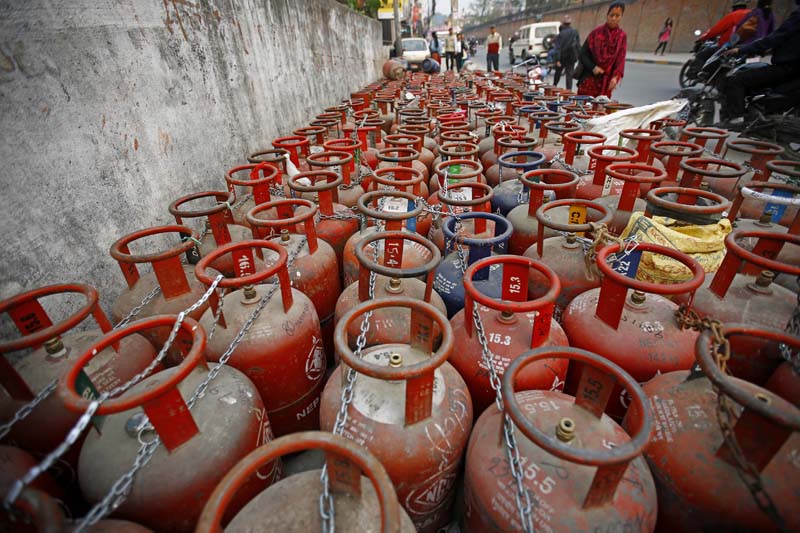Supply of cooking gas fails to ease
Kathmandu, May 2
The domestic market is still reeling under shortage of Liquefied Petroleum Gas (LPG), also known as cooking gas, even after around three months of normalisation of the supply situation, as many households are resorting to panic buying fearing another bout of short-supply of the commodity.
“I ran out of cooking gas four days ago, but the dealer has asked me to wait for 15 more days. I don’t have any extra cooking gas cylinder at my place,” complained Sabina Bhusal, a housewife from Koteshwor.
Since the blockade on Nepal-India border points was formally lifted on February 8, supply of most of the goods, including petroleum products, has normalised. But long queues can still be seen in front of kiosks selling cooking gas.
“We are seeing the scarcity because panic-stricken customers are hoarding gas,” said Mukunda Prasad Ghimire, spokesperson for Nepal Oil Corporation.
Jaya Ram Chaulagain, a gas dealer at Anamnagar, shared the same view.
“After the blockade, consumers bought more new cylinders. Now, they come to
refill it once any one of them is empty. This has raised demand for cooking gas,” Chaulagain said.
To cater to the growing demand, NOC is importing 37,000 tonnes of LPG in May, according to Ghimire.
Prior to the blockade, NOC was importing 25,000 tonnes of LPG per month. But right after the blockade was lifted, it had increased the supply by 20.5 per cent to 30,134 tonnes per month.
Despite the hike in supply and normal flow of cooking gas from India, why is the domestic market still feeling the shortage of the commodity? This is a question that is being asked by many.
Said Shiva Prasad Ghimire, president of Nepal Liquefied Petroleum Gas Industry Association: “The blockade prolonged for five months, during which the supply of LPG bottomed out. As a result, it created a void in the market. So, to make up for the loss, the supply needs to be raised to 40,000 tonnes per month for at least two or three months, as around three million cylinders are still empty.”
However, Prem Lal Maharjan, a consumer rights activist, claimed the main reason for scarcity of cooking gas was the tendency among bottlers to sell LPG directly to industries and hotels, leaving less for the general public.






